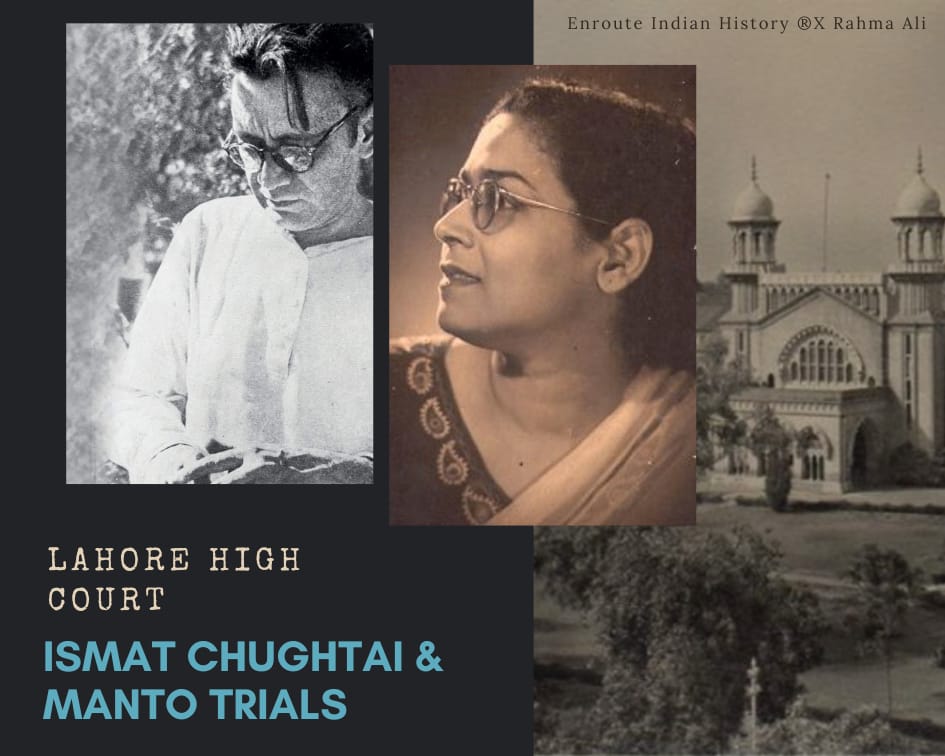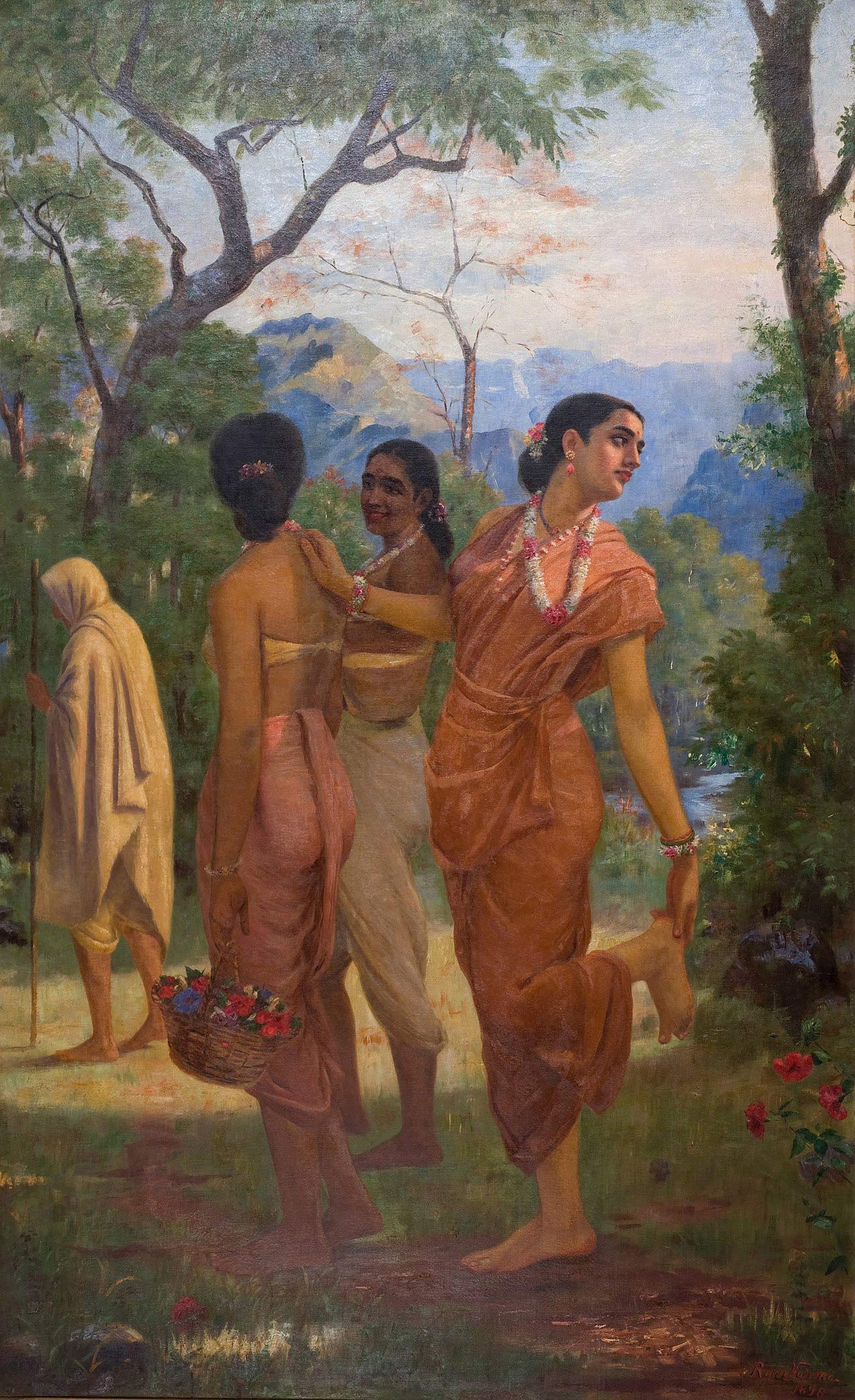
Article by EIH Researcher And Writer
Rahma Ali
The Lahore High Court was established on 21 March 1882, and had jurisdiction over undivided Punjab. This became the site of Saadat Hassan Manto and Ismat Chughtai’s trials over charges of obscenity in their literature. The trials were instigated when Ismat Chughtai’s short story titled ‘Lihaaf’ was accused of obscenity and she was asked to appear before the High Court in Lahore. It was a story that Chughtai herself started calling “ill-fated” as it became a major reason for conflict between her husband and herself.. Manto also faced a suit against him the same day. This put Chughtai’s snarkiness, and Manto’s unapologetic authorial voice to test.
Both were bombarded with letters and newspaper articles, exaggerating and attacking both their writings and their families. Chughtai received the summons from the court in December of 1944, and responded with little heed; She expressed excitement over getting to experience Lahore’s winters while on trial. Manto on the other hand arrived at Chughtai’s house upon having the suit filed against him. He looked pleased and treated the charges as testament of the hard-hitting potential of his writings. He extended this attitude to Chughtai too, teasingly stating that ‘Lihaaf’ was the only great story she had ever written.
Interestingly, these charges of obscenity were set in motion by the Crown of England. The news that knocked on Chughtai’s doors at four in the afternoon read the King’s disapproval at the contents of her story. Chughtai’s ‘Lihaaf’ focused on the romantic relationship between two Muslim women belonging to different classes. And Manto’s ‘Boo’ centered the eroticization of a marginalized woman through the male gaze. When the trials occurred they became a considerably charged incident that attracted much intrigue from the public. Once the hearings were set in motion, the focus shifted to the actual language and content of the stories. The accusers were asked to pinpoint the obscenities in the stories. Manto’s ‘Boo’ was accused of including the word ‘chest’ and Chughtai’s ‘Lihaaf’ was bashed for including the word ‘lovers’. The two won the trials as these accusations failed to count as actual obscenity.
Manto and Chughtai’s writings distinguished them from the self-identifying progressive writers of the time. As put by Chughtai, the progressives mostly chose to remain indifferent to the two, neither appreciating nor criticizing their literary corpus. And given the backdrop of these trials, Lahore became increasingly relevant to the almost criminal pairing of Chughtai and Manto’s genre of writing. Chughtai thought Lahore very inviting and vibrant. Eating fried fish in the city’s cold and strolling the streets with pocketfuls of pistachios characterized their trip. Filling up on alcohol, attending mushairas, and accepting invites extended by Manto’s acquaintances were other features of their time in Lahore.
References:
- https://www.dailyo.in/arts/ismat-chughtai-obscenity-lahore-high-court-lihaaf-in-the-name-of-those-married-women-urdu-literature/story/1/3825.html
- https://go.gale.com/ps/i.do?id=GALE%7CA626205755&sid=googleScholar&v=2.1&it=r&linkaccess=abs&issn=10731687&p=AONE&sw=w&userGroupName=anon%7Ed8301a67
- https://thewire.in/books/how-ismat-chughtai-stood-up-for-freedom-of-speech




















